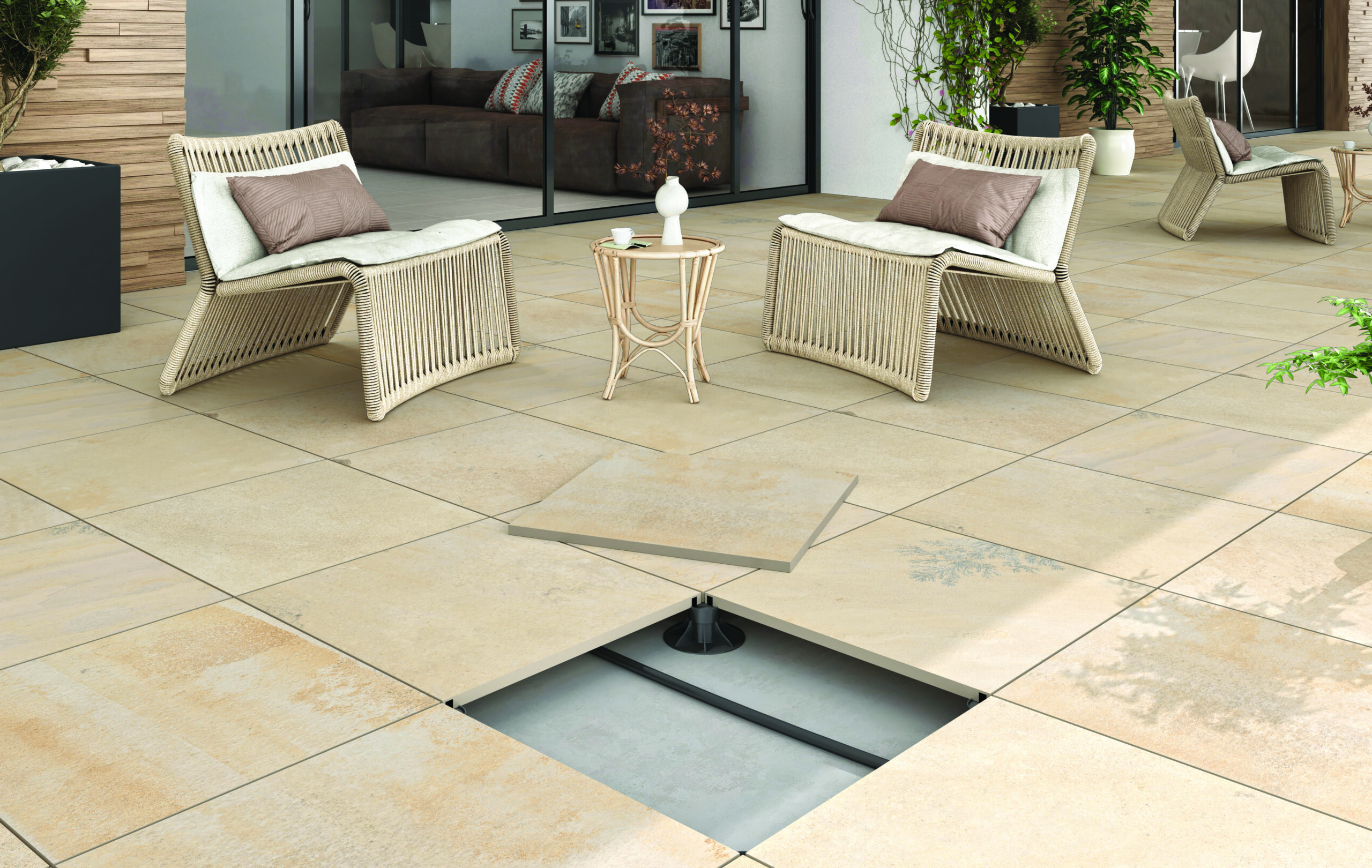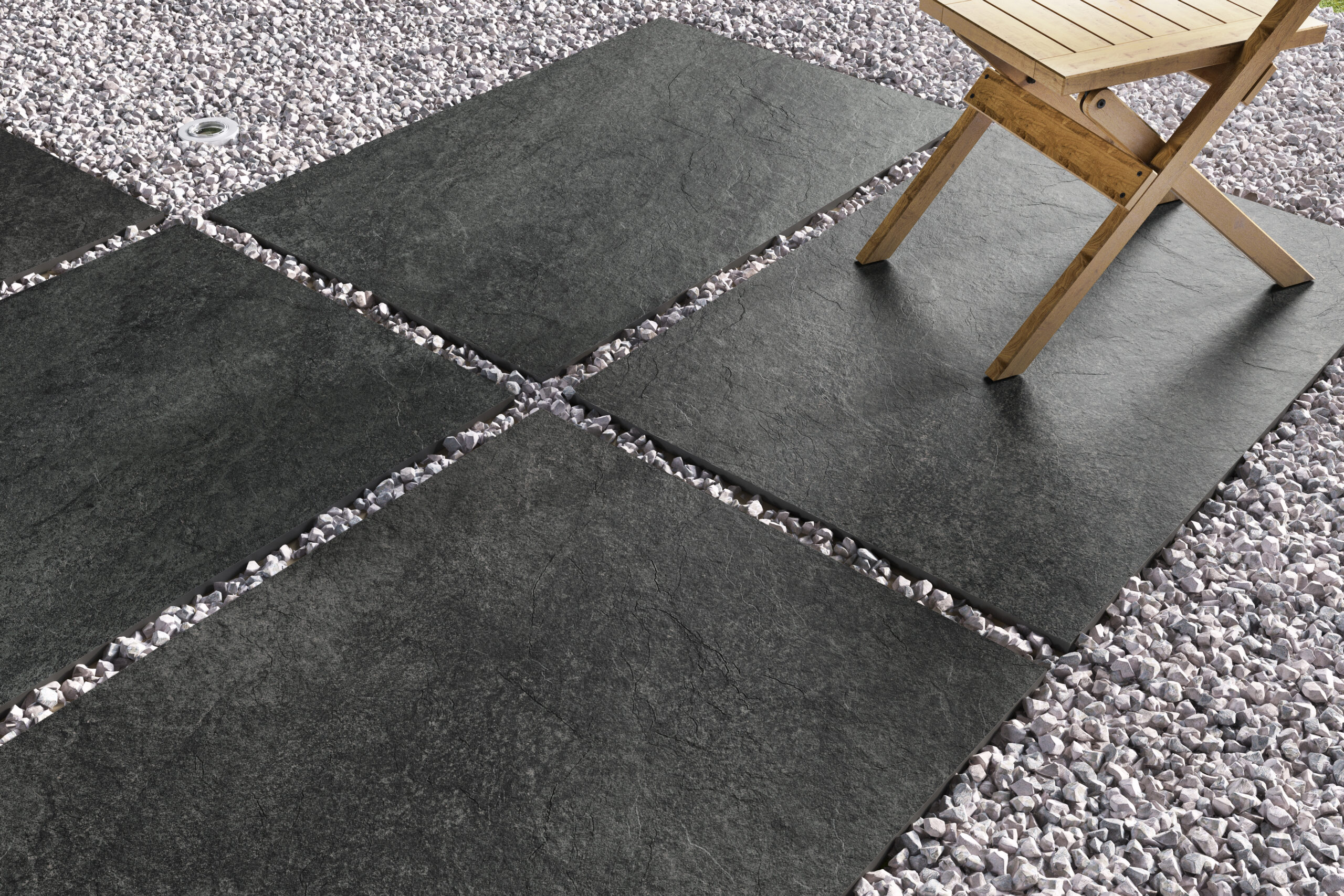Introduction:
Porcelain paving slabs have become a darling of landscaping and outdoor design projects in recent years. These slabs, made from high-quality porcelain, offer a durable and stylish alternative to traditional paving materials like concrete or natural stone. Their growing popularity stems from their exceptional versatility, as they can mimic the appearance of various natural materials such as slate, wood, or marble while providing added benefits like low maintenance, resistance to stains, frost, and fading. This combination of aesthetics and practicality has made porcelain paving slabs a preferred choice for creating stunning outdoor spaces that exude both beauty and functionality.
What are Porcelain Paving Slabs?
Composition:
Porcelain paving slabs are made primarily from porcelain clay, which is a type of ceramic material composed of fine-grained particles. This clay is mixed with other minerals and additives to enhance its properties, such as strength, color, and texture. The mixture is then formed into slabs of various sizes and shapes.
Manufacturing Process:
The manufacturing process of porcelain paving slabs typically involves several steps:
- Mixing: Porcelain clay is mixed with water and other additives to form a homogenous mixture.
- Shaping: The mixture is then shaped into slabs using molds or extrusion processes. These slabs can vary in size, thickness, and texture depending on the desired final product.
- Drying: The shaped slabs are dried to remove excess moisture and strengthen their structure.
- Firing: The dried slabs are fired in kilns at high temperatures, typically ranging from 1200°C to 1400°C. This process vitrifies the clay particles, making the slabs dense, hard, and resistant to water absorption.
- Finishing: After firing, the slabs may undergo additional processes such as glazing, texturing, or printing to enhance their appearance and performance.
Unique Properties:
Porcelain paving slabs possess several unique properties that distinguish them from other paving materials:
- Durability: Porcelain is highly durable and resistant to wear, fading, staining, and scratching. This makes porcelain paving slabs ideal for outdoor use in areas with heavy foot traffic or exposure to the elements.
- Low Maintenance: Porcelain paving slabs require minimal maintenance due to their non-porous surface, which resists the growth of mold, mildew, and algae. They can be easily cleaned with water and mild detergent, making them suitable for both residential and commercial applications.
- Versatility: Porcelain paving slabs are available in a wide range of colors, patterns, and textures, allowing for endless design possibilities. They can mimic the appearance of natural stone, wood, concrete, or other materials while offering superior performance and longevity.
- Frost Resistance: Porcelain paving slabs have low water absorption rates, making them highly resistant to frost damage. This makes them suitable for use in cold climates where freeze-thaw cycles are common.
- Eco-Friendly: Porcelain paving slabs are environmentally friendly compared to natural stone or concrete alternatives. They are made from natural materials and can be recycled at the end of their lifespan, reducing waste and environmental impact.


Applications of Porcelain Paving Slabs:
- Patios: Porcelain paving slabs are perfect for patios, providing a durable and attractive surface for outdoor lounging, dining, and entertaining. With a wide range of colors, textures, and patterns available, homeowners can create a customized patio design that complements their outdoor decor.
- Walkways: Whether in a residential garden or a public park, porcelain paving slabs make for beautiful and long-lasting walkways. They offer a smooth and level surface for walking, jogging, or strolling, while also enhancing the overall landscape design.
- Pool Surrounds: Porcelain paving slabs are an excellent choice for pool surrounds due to their non-slip surface and resistance to water damage. They create a safe and stylish border around the pool area, enhancing its visual appeal and providing a comfortable space for sunbathing and relaxation.
- Driveways: Porcelain paving slabs can add curb appeal to any property when used for driveways. Their high durability and low maintenance make them an ideal choice for areas with heavy traffic, ensuring that driveways remain in pristine condition for years to come.
- Commercial Spaces: From shopping malls to office complexes, porcelain paving slabs are a popular choice for commercial spaces. They offer a sophisticated and professional look, while also providing durability and easy maintenance for high-traffic areas.
- Garden Pathways: Porcelain paving slabs can be used to create charming garden pathways, guiding visitors through lush landscapes and outdoor retreats. Their versatility allows for creative designs that complement the natural surroundings and enhance the overall beauty of the garden.
- Roof Terraces: In urban environments where outdoor space is limited, porcelain paving slabs can transform rooftop terraces into stylish and functional extensions of living spaces. They provide a stable surface for furniture and outdoor activities, while also offering protection against the elements.
- Public Parks and Plazas: Porcelain paving slabs are commonly used in public parks and plazas due to their durability and aesthetic appeal. They can withstand heavy foot traffic and weather exposure, making them an ideal choice for outdoor recreational areas enjoyed by people of all ages.
Design Tips and Inspirations:
- Mixed Sizes and Shapes: Experiment with mixing different sizes and shapes of porcelain paving slabs to create visual interest. For example, combine large square slabs with smaller rectangular ones for a dynamic layout.
- Linear Patterns: Create modern and sleek designs by laying porcelain slabs in linear patterns. Horizontal, vertical, or even diagonal arrangements can add a contemporary touch to your outdoor space.
- Geometric Designs: Play with geometric shapes like triangles, hexagons, or chevron patterns to add a sense of geometry and sophistication to your patio or garden.
- Contrast with Natural Elements: Pair porcelain paving with natural elements like wood, stone, or greenery to create a harmonious outdoor environment. For instance, combine porcelain slabs with wooden decking or gravel borders for a balanced look.
- Color Blocking: Experiment with color blocking techniques by using porcelain slabs in different hues to create vibrant and eye-catching designs. You can opt for bold contrasts or subtle variations for a more subdued effect.
- Incorporate Water Features: Integrate porcelain paving around water features like fountains or ponds to create a serene and inviting atmosphere. The sleek surface of porcelain slabs complements the reflective quality of water, enhancing the overall aesthetic appeal.
- Create Zones: Define different functional zones within your outdoor space using porcelain paving. For example, delineate a dining area with a distinct pattern or border, while leaving other areas open for lounging or gardening.
- Mix Textures: Combine smooth porcelain paving with textured materials like pebbles or rough-cut stone to add tactile interest to your outdoor design. This juxtaposition of textures can create a visually stimulating environment.
- Layer Lighting: Enhance the beauty of your porcelain paving at night by incorporating layered lighting. Install soft, ambient lighting along pathways or beneath seating areas to create a warm and inviting atmosphere after dark.
- Consider Climate: When selecting porcelain paving for outdoor use, consider the climate of your region. Look for materials that are frost-resistant and suitable for outdoor environments to ensure durability and longevity.
Cost Considerations:
- Material Expenses:
- Porcelain Paving Slabs Cost: Porcelain paving slabs tend to be more expensive upfront compared to traditional paving materials like concrete or natural stone. The cost per square foot/meter varies based on the quality, design, and brand but generally falls within the range of $10 to $30 per square foot.
- Quality Variance: Higher-quality porcelain slabs, typically thicker and more durable, come at a premium price compared to lower-quality options.
- Installation Costs:
- Labor Expenses: The cost of labor for installing porcelain paving slabs can be higher due to their precise installation requirements. Porcelain slabs often require professional installation to ensure proper leveling and alignment.
- Preparation Work: Depending on the condition of the ground and the area to be paved, additional expenses may be incurred for excavation, leveling, and laying a suitable base material.
- Long-Term Value:
- Durability: Porcelain paving slabs are known for their durability, resistance to staining, and low maintenance requirements. While the initial investment may be higher, their longevity can provide long-term value by reducing replacement and maintenance costs.
- Low Maintenance: Unlike natural stone, porcelain slabs are less porous, making them easier to clean and maintain. This can lead to savings in cleaning products and labor over time.
- Resale Value: High-quality porcelain paving can enhance the aesthetic appeal and value of a property, potentially yielding returns in the long term.
- Comparison with Other Paving Options:
- Concrete Paving: While concrete is generally cheaper upfront, it may require more frequent maintenance and can be prone to cracking and staining over time, potentially leading to higher long-term costs.
- Natural Stone Paving: Natural stone offers a unique aesthetic but can be more expensive than porcelain and may require more maintenance. Porcelain slabs can mimic the look of natural stone while offering greater durability and lower maintenance.
- Composite Decking or Wood Paving: While initially cheaper, wood and composite materials may require more maintenance and have a shorter lifespan compared to porcelain, making porcelain a more cost-effective option in the long run

